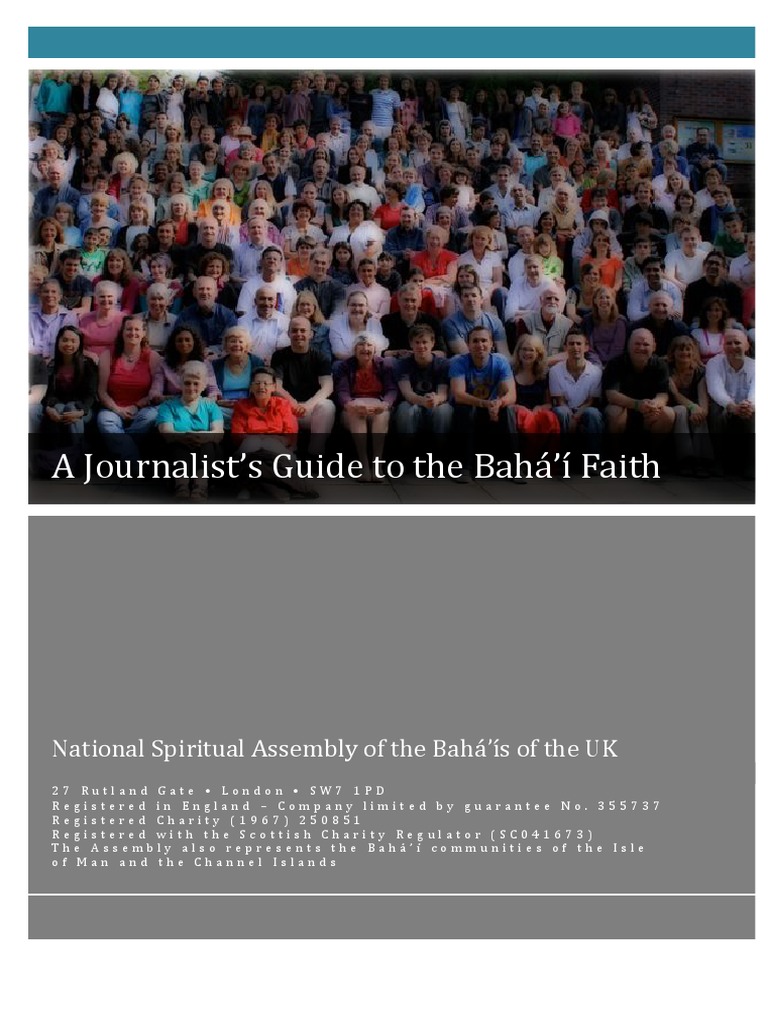The Baha’i Faith, emerging in the mid-19th century, has consistently offered a profound framework for understanding human interconnectedness and societal structures. Its teachings catalyze a transformative lens for the study of sociology, augmented by an emphasis on unity and the empirical exploration of social phenomena.
At the core of Baha’i teachings lies the principle of the oneness of humanity. This foundational tenet asserts that all individuals, irrespective of their geographical or cultural origins, are part of a singular human family. In sociology, this concept encourages the reevaluation of traditional paradigms that often prioritize divisions among groups, leading to a more holistic and integrative approach to social analysis. As sociologists grapple with complex topics such as race, ethnicity, and social class, the Baha’i emphasis on unity can serve as a lodestar, inspiring scholars to challenge entrenched biases and to cultivate inclusivity within their research scope.
Moreover, the Baha’i Faith emphasizes the importance of education as a vehicle for social advancement. Baha’i teachings advocate for universal access to education, positing that personal and societal development is inextricably linked to the education of all segments of the population, especially women. This principle prompts sociologists to examine gender disparities in educational outcomes and their broader societal implications. This lenses prompts an inquiry into how educational equity might reconcile inequalities, thus fostering a more just society. It implies that sociological research should prioritize findings that advocate for educational access as essential policy initiatives.
Notably, Baha’i teachings also engage in the intricate relationship between religion and social structure. Sociology has long explored how religious beliefs facilitate social cohesion and provide moral frameworks for behavior. In this context, examining the Baha’i perspective on religion reveals a distinctive approach to understanding spirituality in a pluralistic world. The Baha’i Faith emphasizes that all religions come from the same divine source, an assertion that fosters respect for diverse religious traditions. This perspective prompts deeper investigations into how interfaith dialogue and collaboration can ameliorate societal tensions, particularly in multicultural settings where misunderstandings between faith communities often catalyze conflict.
Furthermore, the Baha’i commitment to global governance presents a compelling framework for sociological inquiry. With the promotion of a world federation as a solution to global issues, the Baha’i teachings challenge sociologists to examine the efficacy and feasibility of global governance frameworks. This inquiry can invoke discussions around the intersections of national sovereignty, social justice, and international law. By analyzing Baha’i principles within the context of global crises—such as climate change and economic inequality—sociologists can engage in critical dialogues about the evolving nature of governance in our interconnected world.
In addressing social justice, the Baha’i Faith posits that true justice transcends mere equity; it requires recognizing the intrinsic worth of every human being. This paradigm compels sociologists to investigate the underlying social structures that perpetuate inequities and injustices. In practice, this could manifest as sustained research on systemic oppression or socioeconomic disparities. Baha’i teachings inform studies that uncover the lived realities of marginalized communities, advocating for sociological responsibility that prioritizes social justice as an ethical imperative in research endeavors.
The Baha’i perspective also encourages a robust analysis of the impact of materialism on human society. The Faith critiques material excess as a barrier to spiritual development and social cohesion. Sociologists, drawn to this critique, may explore the implications of consumer culture and economic disparities on community relationships. This examination encourages a rethinking of values and priorities in contemporary society, suggesting that a sociological lens aligned with Baha’i principles might prioritize flourishing human relationships over rote economic metrics.
Moreover, the Baha’i Faith champions the methodology of consultative discourse—a process rooted in collective decision-making that emphasizes humility, respect, and a genuine quest for truth. This consultative approach, when applied to academic and sociopolitical spheres, can revolutionize how scholars interact with one another and with the communities they study. Engaging in thoughtful consultation can foster environments where diverse perspectives are valued, transforming academic debates into opportunities for collaborative growth and shared understanding.
Finally, the Baha’i commitment to the arts and sciences can inspire sociologists to adopt interdisciplinary studies that weave together cultural narratives with empirical data. This cross-pollination of disciplines can spark innovative research methodologies that reflect the richness of human experience. By embracing a multidimensional approach to sociology infused by Baha’i teachings, researchers can cultivate a deeper understanding of social dynamics that emphasizes interconnectedness and shared purpose.
In summation, the Baha’i Faith, with its profound emphasis on unity, justice, education, and collaborative governance, offers a distinctive lens for the exploration of sociological themes. Its principles promise a shift in perspective that can enrich sociological studies, challenge scholars to engage with pressing social issues, and inspire curiosity about the potential for a more equitable and harmonious society. By integrating Baha’i teachings into sociological inquiry, researchers can foster a more compassionate and inclusive understanding of the complexities of human behavior and societal structures, ultimately illuminating pathways toward social betterment.
